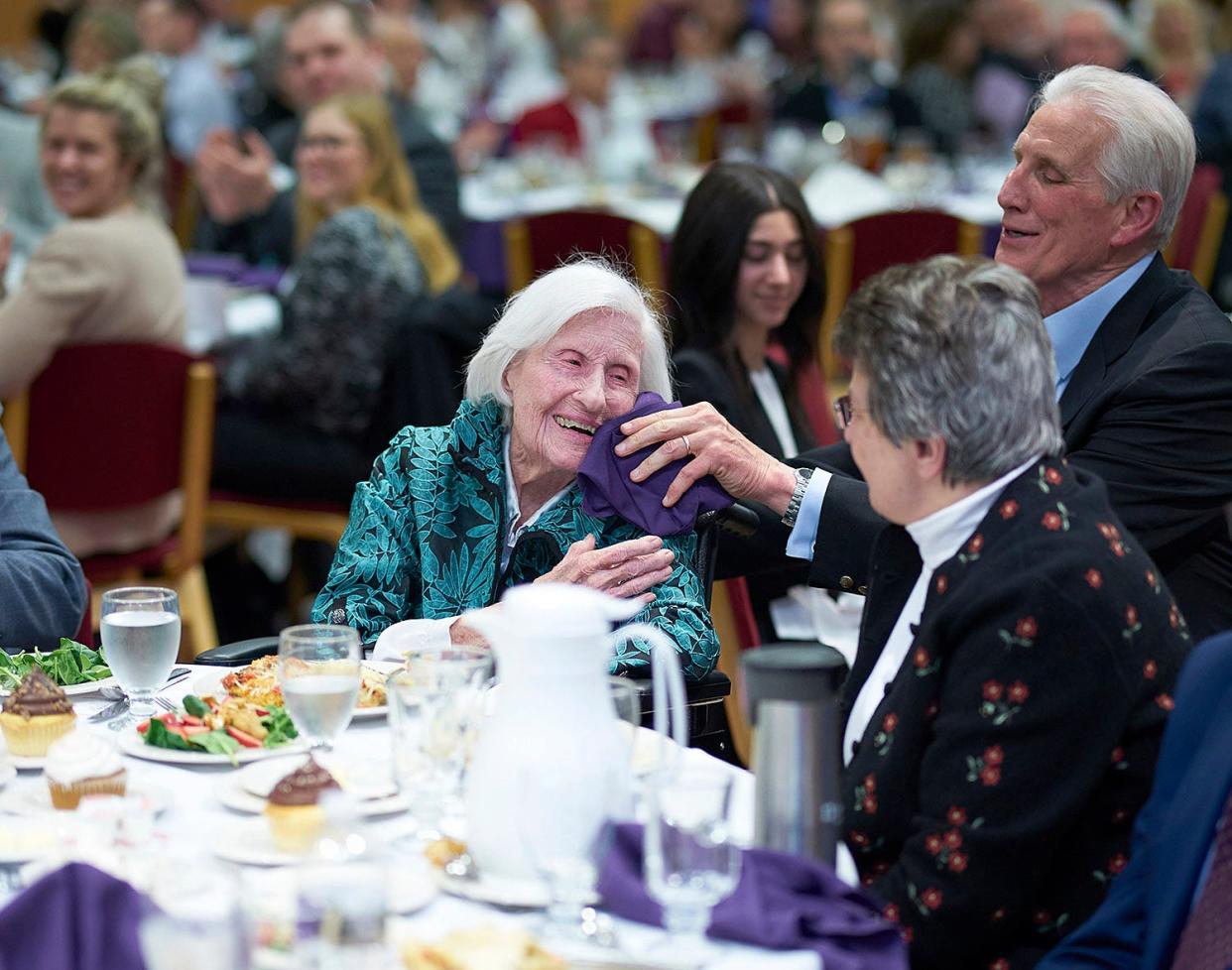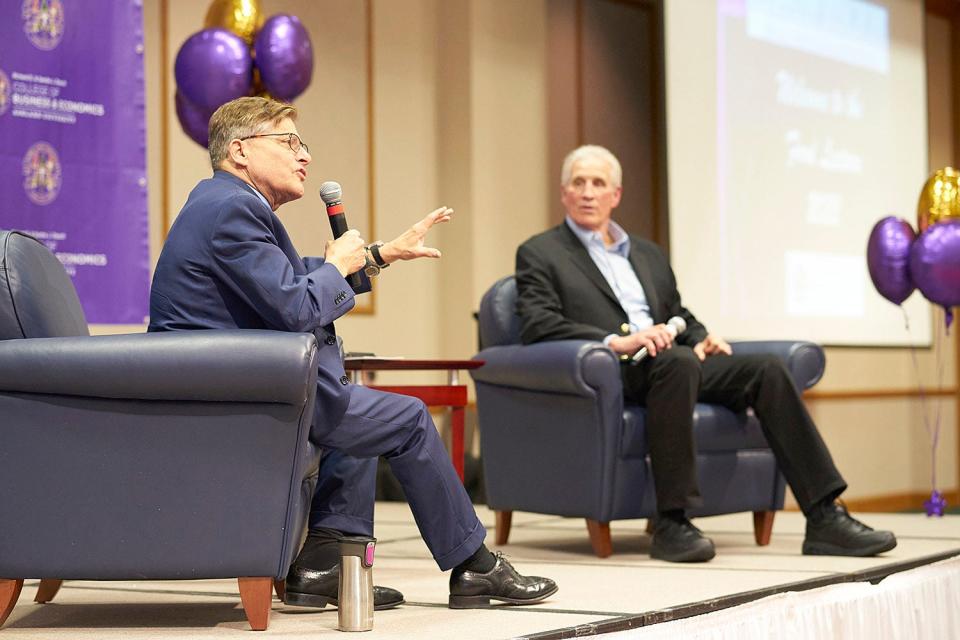Ford’s 100th birthday celebrated with program on future life expectancy

- Oops!Something went wrong.Please try again later.
- Oops!Something went wrong.Please try again later.
The topic of this year’s Ford Lecture — future life expectancy — meshed perfectly with whom the annual event is named after. Lucille Garber Ford, a beloved and longtime faculty member at Ashland University, recently celebrated her 100th birthday, according to a news release from AU.
So, while observing that milestone, Michael Roizen and Peter Linneman ’73 discussed subjects related to Roizen’s forthcoming book, “The Great Age Reboot: Cracking the Longevity Code for a Younger Tomorrow,” for an attentive crowd at the John C. Myers Convocation Center on March 31, the release said.

More: Facing Trump-backed primary challenger, Congressman Bob Gibbs announces retirement
Roizen, the emeritus chief wellness officer at the Cleveland Clinic and a New York Times best-selling author, firmly believes that with the anticipated advances in medical science, society is “on the cusp of a historic moment” as average life expectancy will increase exponentially. To get his point across to the 200-plus AU business students as well as faculty, staff and friends who were on hand, he cited Ford’s rare longevity as an example. “When she was born, the average life expectancy was 52,” Roizen noted. “Ford will be typical of the future, whereas (she is) very unusual now.”
Roizen, who at age 76 still practices anesthesiology and internal medicine, is passionate about helping people choose to live younger. He contends that not only will people live much longer, but they have the potential for fuller and healthier lives. Thus, their prime years will be extended. For example, a future 90-year-old may have the same quality of life as today’s 45-year-old.
Fourteen medical areas of aging on the verge of breakthroughs
There are 14 medical areas of aging, each on the verge of breakthroughs, according to Roizen. He didn’t get into the specifics of each one, but did highlight recent research that could prevent or even reverse mental cognitive decline.
If life expectancy really does soar, many believe there will be significant economic, political and social concerns. Linneman, one of the leading strategic thinkers in the real estate industry and an emeritus professor at the University of Pennsylvania’s Wharton School of Business, resists that argument. In reference to the many studies taking place that will improve health, he said “We can afford it. In fact, we cannot afford not to. Right now, 18 percent of our nation’s GDP is devoted to healthcare. Imagine if we can eliminate obesity and free up 10 percent of our GDP.”
This will certainly be a topic to monitor closely. Whether the average life expectancy increases significantly in the very near future or not, Ford closed the program by offering sage advice to both young and old in the audience. In a video message, she remarked the metaphor time flies really holds true, so “be precious with your time.”
The Ford Lecture Series, created and sponsored by Peter and Kathleen Linneman ‘73, is an annual lecture and luncheon, inspired by Larry and Lucille Ford and hosted by the Dauch College of Business and Economics. Its goal is to enrich business education at Ashland University by brining extraordinary business leaders to campus to discuss their businesses and life philosophies.
Lucille Ford came to Ashland University in 1967 as a professor of economics. She was named dean of the School of Business Administration, Economics and Radio/TV in 1979, vice president of academic affairs in 1986, provost in 1990 and retired as executive assistant to the president in 1995. She is credited with guiding the offerings of several new majors and developing educational programs, such as the nursing program, writing center and the honors program, and she personally instructed more than 3,000 business and economics students during her tenure.
This article originally appeared on Ashland Times Gazette: Ford Lecture on future life expectancy

